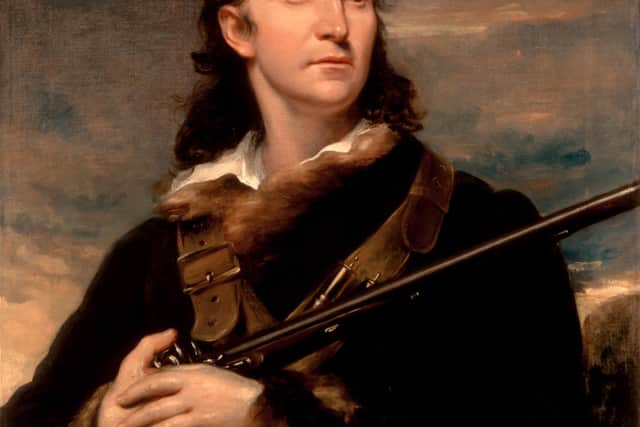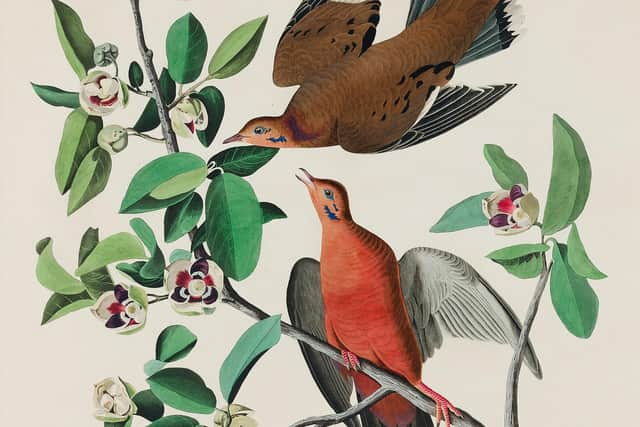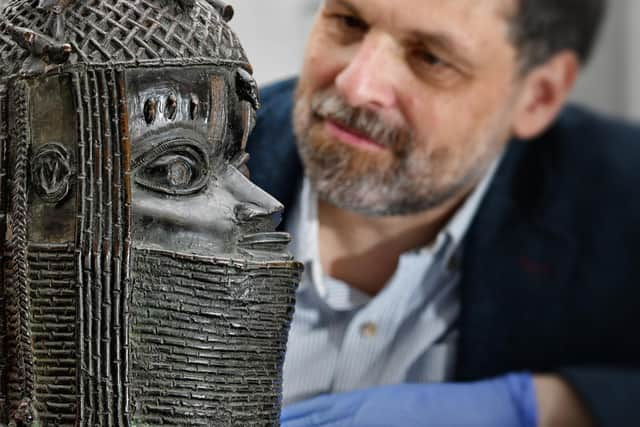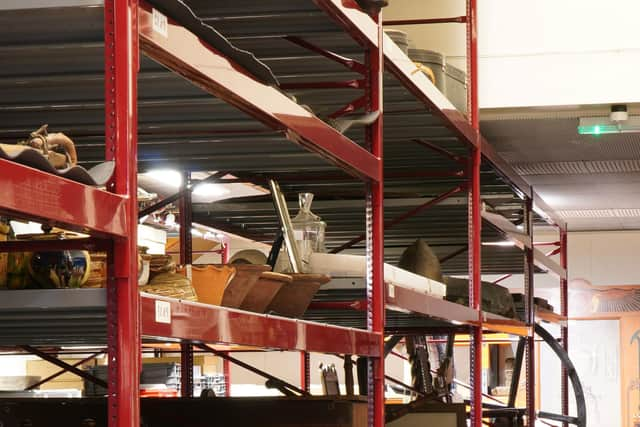Scots university seeks to repatriate tribal skulls stolen from graves around the world
Nine skulls held by the museum collection at the University of Aberdeen were taken by naturalist John James Audubon, a leading US ornithologist and illustrator who also raided skulls from graves to support now wholly discredited theories of biology and race.
Work is underway to trace the correct representatives of relevant tribes and nations to discuss possible repatriation of the skulls, with discussions with one undisclosed tribe now open.
Advertisement
Hide AdAdvertisement
Hide AdNeil Curtis, head of museums and special collections at the University of Aberdeen, said seeking the return of the skulls taken by Audubon was the “right” thing to do.
Mr Curtis said: “We have found that Audubon acquired the human remains by stealing them from Indigenous graves, as well as ‘owning’ enslaved people. There is also a skull of someone who appears to be have an enslaved African. We are therefore trying to find which nation, which tribe, they are from and who are the present day representatives of these people, so we can contact them and they can decide whether they would like them to be returned.”
Among the skulls is one of an African man believed to have been enslaved in South Carolina, which Audubon took in 1859.
Others belong to two Passamaquoddy Indians – one skull taken from Maine and the other from Mexico – and an Osage Indian from Little Rock, Arkansas.
Skulls of individuals from present-day Inner Mongolia, Tasmania and Assam in India also sit among the collection.


Audubon, whose book The Birds of America is still widely revered, is known to have visited Edinburgh several times in the 1820s and 1830s and made a number of connections, including with anatomist Dr Robert Knox - of Burke and Hare infamy – writer Sir Walter Scott, and lawyer and phrenologist George Combe.
He also met William McGillivray who took the skulls to Aberdeen, where he later worked as professor of natural history.
Discussions over the return of the skulls comes amid growing unease about the activities of the US naturalist, with the Audubon Naturalist Society (ANS), based in Washington DC, announcing last month it will change its name.
Advertisement
Hide AdAdvertisement
Hide Ad

The University of Aberdeen, which has had a procedure for considering repatriation claims since 2003, is unusual in its approach to restitution given it now proactively seeks discussions regarding the return of items.
This was the case with the university’s successful repatriation last month of a Benin Bronze to Nigeria, with its museum becoming the first in the world to return one of the thousands of artefacts looted during the British military invasion of Benin City in 1897.
Mr Curtis, who recently assisted in writing the decolonising collections guidance for the Museums Association, said there were many complexities surrounding repatriation with ethics, not law, broadly driving the return of human remains.
He added: “It is too easy for us in the West to try to cleanse our consciences by returning things without considering the impact of what we are doing. For example, when we talk about returning human remains, where is the right place for them to go? Is it right for us to try to force the return of the remains of an ancestor, when someone might not be ready to receive them?


"It will depend hugely on different places in the world and different circumstances. This is not about trying to resist repatriation, it is about making sure that it is done properly.
“Our duty is to let people know these items are there, to open discussion, and to look after them respectfully. Sometimes, even when things were acquired in horrible circumstances, people do not necessarily want them back, or at least not now.”
Meanwhile, the university is working with the Haida Cultural Centre in British Columbia on a collection of around 100 items collected by Captain William Mitchell, an employee of Hudson’s Bay Company who sailed the SS Beaver, the first to operate on the Pacific Northwest coast.
Items include a pipe depicting the steamship, a number of carvings made for sale, a wolf mask with movable eyes and a seal skinner, which is labelled as being taken from a grave.
Advertisement
Hide AdAdvertisement
Hide Ad"We need to do the research so we can tell truthful stories about the past,” he added.
Education surrounding a rare surviving collection of beadwork, which was likely made in the 1760s by Cherokee, Chickasaw, Choctaw or Muscogee Creek people, continues with the help of experts in the craft.


It was brought back to Scotland by William Ogilvie, of Kincardineshire, secretary to the Indian Affairs Commission of the Southern Colonies, the 10 pieces surviving when many people moved off traditional lands to what is now Oklahoma did not.
Aberdeen University has the third biggest collection of items of world cultures in Scotland, with objects often sent back by medical graduates who travelled the Empire or later donated by widows of former students.
Mr Curtis said records of such items were often “not great” given they often outlined the interpretation of the collector and “not the people from whom they were collected”.
He pointed to the university’s 2003 repatriation of a sacred bundle to the Kainai First Nation in Canada, which had been catalogued as a headdress with its deep spiritual significance to its people going long unknown.
So sacred was the item, that no photographs of it were published as it was returned, with the keeper of the headdress ordering a Prince Charlie jacket to wear while he was dancing with it, to mark its time in Aberdeen.
Mr Curtis said: “Done sensitively and respectfully, repatriations can build new stories and good relations on a basis of greater equality, and lead us to having greater understanding of the collections we care for.”
A message from the Editor:Thank you for reading this article. We're more reliant on your support than ever as the shift in consumer habits brought about by Coronavirus impacts our advertisers.
If you haven't already, please consider supporting our trusted, fact-checked journalism by taking out a digital subscription.
Comments
Want to join the conversation? Please or to comment on this article.
